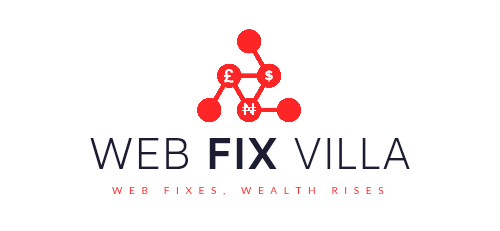
Introduction
Loan apps have become a popular way for Nigerians to access quick and easy loans. However, many borrowers have voiced concerns about harassment from these apps, particularly when they default on repayments. One of the most controversial practices is the tendency of loan apps to contact and message borrowers’ friends, family members, and colleagues. But is this practice legal? What does Nigerian law say about loan apps accessing your contacts?
In this article, we’ll break down the legal framework surrounding loan apps contacting your contacts, explain your rights as a borrower, and show you how to report apps that violate your privacy.
How Loan Apps Gain Access to Your Contacts
To process loans, many loan apps request permission to access your contacts, SMS, call logs, and even photos. While this is often presented as a necessary step for identity verification, it can result in privacy violations once the app has access. Afterward, the app may:
- Send threatening messages to your contacts if you fail to repay.
- Label you as a fraudster or criminal over minor defaults.
- Share your personal information with third parties without your consent.
But is this legal? Let’s look at the laws that govern this practice.
What the Law Says About Loan Apps Calling Your Contacts in Nigeria
Loan apps contacting your contacts without consent is illegal under Nigerian privacy laws. Regulatory bodies such as the Central Bank of Nigeria (CBN), the Federal Competition and Consumer Protection Commission (FCCPC), and the National Information Technology Development Agency (NITDA) have all issued clear guidelines against this practice.
- FCCPC Regulations
The FCCPC is responsible for protecting consumers in Nigeria. It has made it clear that loan apps are prohibited from harassing or defaming borrowers. Key points from FCCPC regulations include:
- Loan apps cannot contact third parties (family, friends, colleagues) without explicit consent from the borrower.
- Any app found guilty of harassment or defamation can be fined, shut down, or removed from app stores.
- Borrowers can file complaints against such apps for further investigation.
- Nigeria Data Protection Act (NDPA)
The NDPA, enforced by NITDA, governs the protection of personal data in Nigeria. Under this law:
- Loan apps are not permitted to access or share a borrower’s contacts without clear consent.
- Borrowers have the right to withdraw consent if their data is misused.
- Companies violating this law could face penalties, including hefty fines.
- CBN Regulations on Digital Lenders
The CBN regulates financial institutions, including digital lenders. It has set out specific rules, including:
- All digital lenders must be registered and licensed to operate in Nigeria.
- Loan apps must not engage in harassment or blackmail tactics for debt collection.
- Apps found violating privacy laws risk losing their operating licenses.
How to Protect Yourself from Loan Apps That Call Your Contacts
If a loan app is harassing you or your contacts, here’s how you can protect yourself:
- Revoke App Permissions
- Go to your phone’s settings.
- Locate the loan app under App Permissions.
- Deny access to your contacts, messages, and call logs.
- Uninstall the app to prevent further access.
- Report the Loan App to Authorities
If a loan app has violated your privacy, you can report it to the relevant authorities:
- FCCPC Website: www.fccpc.gov.ng – Submit a complaint.
- CBN Consumer Protection: Email cpd@cbn.gov.ng.
- NITDA: Report data violations at www.nitda.gov.ng.
- Take Legal Action for Defamation or Privacy Breach
If a loan app has defamed you by contacting your friends or family, you can take legal steps:
- Consult a lawyer to explore filing a lawsuit for defamation and privacy invasion.
- Seek a court order to stop the loan app from continuing harassment.
- Request compensation if the harassment has caused damage.
Loan Apps Banned for Harassment
Several loan apps have been blacklisted and removed from the Google Play Store and Apple App Store for violating borrower privacy and engaging in harassment. Some of the notorious apps include:
- GoCash
- EasyCredit
- SokoLoan
- FastMoney
- Camelloan
These apps were banned after regulatory bodies acted on complaints from users.
Conclusion
Loan apps do not have the legal right to contact your friends, family, or colleagues without your consent. This practice is a violation of privacy laws in Nigeria, and borrowers are entitled to report such violations.
If you or someone you know has been harassed by a loan app, take immediate steps to revoke permissions, report the app to the relevant authorities, and seek legal action for privacy violations.
Have you ever experienced a loan app contacting your contacts? Share your story in the comments below to help raise awareness!












